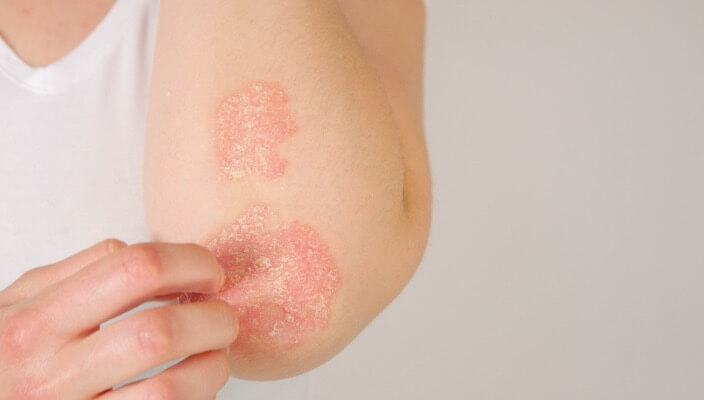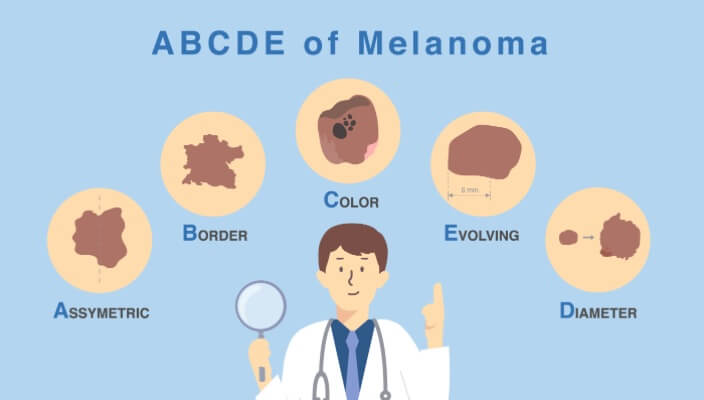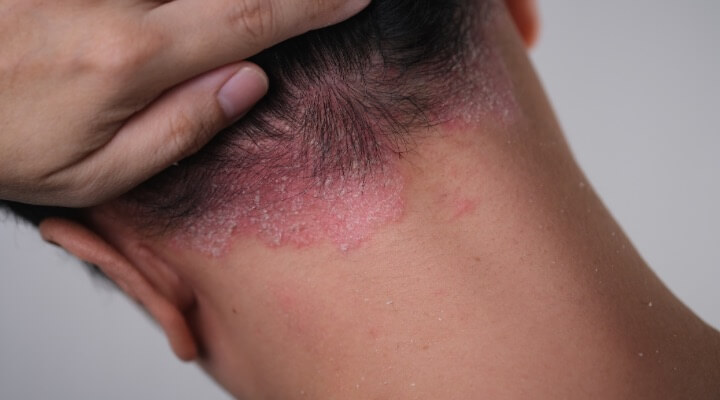Unraveling Psoriasis: Coping Strategies and Management Techniques
Navigating Life with Psoriasis
 Living with psoriasis can be a challenging journey that extends beyond the physical symptoms, affecting mental and emotional well-being. Understanding the nature of psoriasis, identifying triggers, and implementing effective coping strategies are crucial steps in navigating the complexities of this chronic autoimmune condition.
Living with psoriasis can be a challenging journey that extends beyond the physical symptoms, affecting mental and emotional well-being. Understanding the nature of psoriasis, identifying triggers, and implementing effective coping strategies are crucial steps in navigating the complexities of this chronic autoimmune condition.Psoriasis manifests as red, itchy, and scaly patches due to the rapid buildup of skin cells. Embracing the psoriasis journey involves acknowledging its impact on both physical and emotional well-being. It's essential to recognize that psoriasis is not contagious but a result of the immune system mistakenly attacking healthy skin cells.
Triggers play a significant role in exacerbating psoriasis symptoms. Stress, infections, certain medications, and changes in weather are common triggers. By identifying and mitigating these factors, individuals can gain more control over flare-ups and improve their overall quality of life.
Consulting with a dermatology provider specializing in psoriasis is a pivotal step in effective management. Dermatologists can tailor treatment plans to address the specific needs of individuals, considering the severity of their psoriasis and its impact on their daily lives. Dermatology providers may recommend various treatment modalities, including topical medications, phototherapy, and systemic medications. Understanding available treatment options empowers individuals to make informed decisions about their care.
Topical Medications
Phototherapy (Light Therapy)
Systemic Medications
Psoriasis Symptoms and Treatment Options
Psoriasis Coping Strategies
Beyond medical interventions, implementing coping strategies is essential for individuals with psoriasis to navigate the challenges associated with the condition.
- Embracing Self-Care: Prioritizing self-care is integral to managing psoriasis. Establishing a consistent skincare routine, including moisturizing and gentle cleansing, helps alleviate symptoms. Incorporating relaxation techniques such as mindfulness and meditation can also contribute to stress reduction, a common trigger for psoriasis flare-ups.
- Building a Support System: Living with psoriasis can be emotionally taxing, emphasizing the importance of a robust support system. Connecting with friends, family, or support groups allows individuals to share experiences, garner understanding, and receive the encouragement needed to cope effectively.
- Educating Others: Psoriasis is often misunderstood, leading to misconceptions and stigma. Educating others about the condition can help foster empathy and dispel myths. By raising awareness, individuals with psoriasis contribute to a more informed and supportive community.
- Management Techniques: Effectively managing psoriasis involves a combination of lifestyle adjustments, medical interventions, and ongoing self-care practices.
- Integrating Healthy Habits: Adopting a healthy lifestyle can complement medical interventions. This includes maintaining a balanced diet, staying physically active, and avoiding smoking and excessive alcohol consumption. These habits contribute to overall well-being and may positively impact psoriasis symptoms.
- Tracking Progress: Regularly monitoring psoriasis symptoms and their response to treatment is crucial. Keeping a journal or utilizing smartphone apps can help individuals track triggers, flare-ups, and the effectiveness of different management strategies. This proactive approach facilitates more personalized and effective long-term management.
Empowering Life with Psoriasis
Psoriasis presents unique challenges, but with the right understanding, coping strategies, and management techniques, individuals can lead fulfilling lives. Seeking professional guidance, implementing self-care practices, and fostering a support system are essential components of this journey. By embracing a comprehensive approach, individuals with psoriasis empower themselves to navigate the complexities of the condition and improve their overall well-being. Ready to take control of your psoriasis journey? Schedule a consultation with our experienced dermatology providers to explore personalized strategies for managing and coping with psoriasis.
Featured Products
Check your local office for current stock!
Check your local office for current stock!
Featured Blogs

- Skin Cancer
- General Dermatology
- Skin Exams
Your skin is your largest organ and its first line of defense. Learn more about why a skin exam should be a part of your wellness routine.
Read More
- Skin Cancer
- Sun Safety
The sun's ultraviolet (UV) radiation poses a significant risk. Discover ways to protect you and your loved ones from the sun and keep your skin healthy all year long.
Read More
- Skin Cancer
- General Dermatology
- Skin Exams
Learn the ABCDEs of Melanoma, the deadliest form of skin cancer.
Read More


